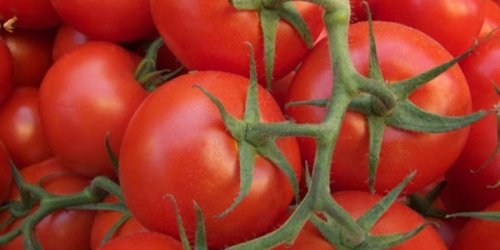
A recent study supports other studies that lycopene is effective in preventing prostate cancer.
Prostate cancer is one of the types of cancer that occurs with the uncontrolled growth of cells in the prostate gland, which is common in men and can cause loss of life. About 20% of men will develop prostate cancer at some point in their lives. Although the problem can be solved by various methods in cases diagnosed at an early stage, the rate of death is quite high, especially in advanced cases. Even if it does not cause loss of life, it causes a serious decrease in the quality of life, especially with its negative effects on urination and sexual functions. This situation increases the importance of prostate cancer treatment even more.
As in every disease, the most effective treatment in prostate cancer is actually prevention before the disease occurs. Prostate cancer is a cancer that develops due to both genetic and non-genetic (environmental) factors. It is not possible to change genetic factors. However, non-genetic factors are factors such as the environment in which the person lives, nutrition and lifestyle, and by changing these, protection from prostate cancer and many other diseases can be achieved. However, although it is known that environmental factors are effective in the development of prostate cancer, it has not yet been clearly clarified what these factors are and what is effective in the prevention of prostate cancer.
Lycopene is thought to be effective in preventing prostate cancer. lycopene; It is an antioxidant (protecting from the harmful effects of oxygen) found in foods such as watermelon, pink grapefruit, especially tomatoes and tomato-containing products. This substance cannot be produced in the human body and must be consumed. This will be possible by eating foods containing lycopene. There are serious findings in many studies regarding the many benefits of this substance. In the prevention of prostate cancer, there are studies showing that lycopene has an effect, as well as studies showing that it is ineffective. So the existence of this effect is still controversial.
However, a recent study has strongly supported the findings of previous studies that lycopene is effective in preventing prostate cancer. In addition, lycopene has been found to be effective in preventing not only general prostate cancer but also prostate cancer with a high mortality rate. In fact, it has been stated that it is much more effective in preventing prostate cancer with a high loss of life.
In this study; Approximately 50,000 American male healthcare workers aged 40-75 years who were negative for prostate cancer screening at baseline (ie, no prostate cancer) were recruited and their diet, lifestyle, consumption of lycopene-containing foods, and prostate cancer incidence rates were followed regularly for 24 years. Nutritional statuses were evaluated every 4 years, lifestyles and health statuses were evaluated every 2 years. High intake of lycopene has been associated with prostate cancer and the development of angiogenesis (new vessel formation, a condition that causes cancer progression) in this cancer. In conclusion, a strong correlation was found between high intake of lycopene and the prevention of the development of prostate cancer and angiogenesis with a high overall and mortality rate.
In conclusion, even the smallest development in prostate cancer, which is common today, should be closely followed and taken into account. This study may not be the endpoint of the effect of lycopene on prostate cancer, but it strongly supports the findings in this direction. In addition, with this study, tomatoes have shown that they deserve to find more places on our tables.

